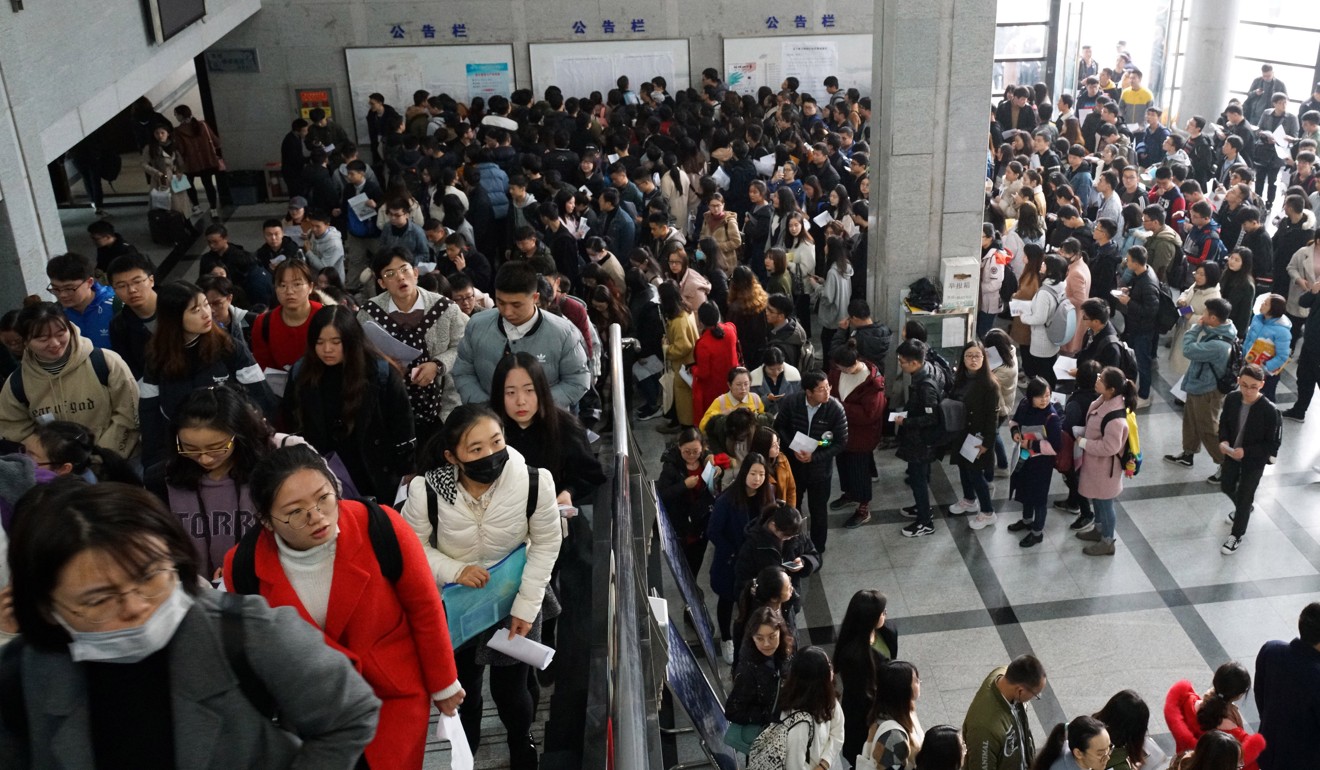
China’s civil service: low pay, long hours and 1 million people want in
- Number of jobs up for grabs halved in 2018, and 63 people applied for each and every one of them
- Some are drawn by the chance to do their bit for society, others by the promise of job security
Despite the low pay and heavy workload, jobs in China’s civil service are still highly sought after.
In December, about 920,000 applied for the 14,500 positions available, or roughly 63 for each vacancy, Xinhua reported.
The previous year, more than 1.1 million people sat the test, although there were almost twice as many positions available, so the competition is getting hotter.
Sarah Shen, a saleswoman from Nanjing, the capital of east China’s Jiangsu province, was among those who sat the provincial civil service test last month. She said that even though she was aware of the reduced benefits and low salary, she was still drawn to the job.
“Being inside the government system means stability,” she said. “Working at a private company doesn’t come with many benefits or a great salary either. And on top of that you can be fired at any time, or your company may close down.”
Exclusive: China’s civil servants pay the price for corruption-busting salary boost
Being a saleswoman was a high-pressure job, she said, as she was always under pressure to meet her monthly target. By comparison, her friends who worked in the civil service seemed to have much more time to spend with their families.
For others, the lure of the civil service is the opportunity to play a part in implementing government policy.

After two years of trying, 27-year-old Mu Yi passed the test last year and became a civil servant in Beijing. She studied social governance at university and looks back fondly on the research field trips she took with her mentor.
“I believe there’s a difference between getting a post as an office clerk at a private company and having the opportunity to push for the implementation of a policy, and actually benefiting the locals,” she said.
Even with the shrinking benefits, people like her would always be drawn to the profession, she said.
Middle classes stress over debt as unemployment soars
But not everyone regards the civil service as a calling. Many are leaving for the private sector and the lure of larger pay packets.
A civil servant in Shenzhen, Guangdong province, who wished to remain anonymous, said a number of his friends had left the civil service and joined the private sector in recent years.
One of them, a former deputy director of a district committee of the Communist Party, left to join an investment fund as he had lost interest in his work and wanted a change.
“Private companies value their professional knowledge, their work experience in the government and the connections they’ve built,” he said.
Although the pay was much higher in the private sector, the man said he would never leave the civil service as he lacked the skills and professional knowledge to survive outside it.

.jpg?itok=H5_PTCSf&v=1700020945)